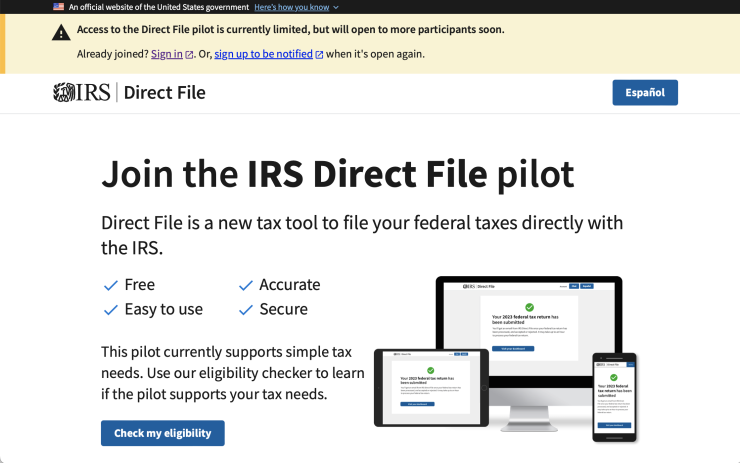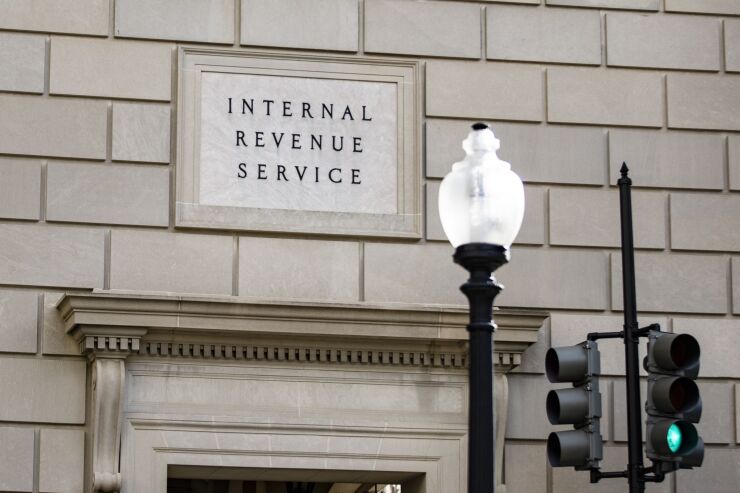Want unlimited access to top ideas and insights?
Tax season usually marks the busiest time of the year for IRS professionals, but for the 30,000 staff who have accepted buyouts or been laid off by the agency this year, the calendar has been painfully clear.
Higher-ups have not been immune to the upheaval, with four IRS commissioners and
"The fight against weaponization and politicization at the IRS is a top-tier priority for the Trump administration, and Deputy Secretary Faulkender will continue to make the needed changes both durable and lasting," a Treasury spokesperson noted. "We urge Congress to act quickly to confirm permanent leadership at the IRS to ensure its ability to best serve taxpayers going forward."
Read more:
The uncertainty surrounding the IRS started on inauguration day, when
As the revolving door at the top of the IRS continues to spin, Elon Musk's Department of Governmental Efficiency has introduced its own initiatives to the agency. This tax season seemingly saw the end of the government's Direct File program, after DOGE shut down development work on the project for 2026. This came following
"Reported totals did not include an estimated $8.8 million for costs incurred by the Office of Management and Budget for employees detailed to the IRS to help develop and pilot Direct File and costs incurred to create or leverage existing accounts through the IRS's credential service provider," said the report regarding the main source of the costs discovered.
Though a significant portion of the funding for enforcement, taxpayer services, and tech modernization are being eliminated by Congress, mass layoffs may be the most salient example of DOGE's transformation of the IRS.
"My real concern is that anything where you need people at the IRS will take more time," said David Shapiro, partner and chair of the tax, compensation and benefits practice at law firm Saul Ewing LLP. "That goes for even the most mundane matters. For example, to establish a domestic entity you can just go online and get a tax ID, or do it by phone. A foreign entity can't do that. So it's harder for foreigners who want to do business in the U.S. Likewise for low-income taxpayers to resolve an issue through an offer in compromise. This will all go away without agents to help."
Read more:
See below for the latest headlines out of the IRS this month at the conclusion of filing season.

Leadership changes and layoffs at the IRS
Tax Day 2025 marked the 70th anniversary of the April 15 filing deadline. As tax season has wound down, the uncertainty at the IRS has not.
Many high-level IRS officials have left or been pushed out in the waning months of the filing period, chief information officer Rajiv Uppal being the most recent on a list that includes four commissioners and former acting chief counsel William Paul.
IRS heads are not the only personnel at risk — 30,000 employees have taken buyouts or been laid off and 7,000 probationary workers have been placed on paid leave.
Read more:

New acting commissioner appointed
After serving as acting commissioner for just three days, Gary Shapley was replaced by Deputy Treasury Secretary Michael Faulkender — the fifth IRS head of the year. Shapley had achieved notoriety as a whistleblower after testifying against Hunter Biden to the House Oversight Committee as an IRS Criminal Investigation special agent in 2023.
Reportedly, Treasury Secretary Scott Bessent complained to the Trump administration that Shapley had been appointed without his consultation. Shapley had been named a senior advisor to Bessent last month.
Read more:

Direct File ending next year after Elon Musk's IRS reorganization
After Elon Musk
Lobbying group the American Coalition for Taxpayer Rights advocates for nurturing the public-private Free File partnership. In 2025, nonprofit Code For America helped bring the Direct File program to 25 states, up from 12 the year before.
"Direct File was a massive success, saving taxpayers millions in fees, saving them time and cutting out an unnecessary middleman that took money out of Americans' pockets for no good reason. Trump and Secretary Bessent are robbing regular American families to pay back lobbyists that spend millions to make tax filing more expensive and more difficult," said Senate Finance Committee ranking member Ron Wyden, D-Oregon, in a statement.
Read more:

DOGE creating super API next step in IRS data deregulation
Elon Musk plans to organize the IRS data system around a single API by early May— possibly with the help of Peter Thiel's Palantir. APIs are necessary for data to transfer from one computer program to another, and the IRS already has several existing ones that this effort would centralize.
Layoffs and privacy concerns seem to both be impediments to DOGE's plans. The IRS has announced 20,000 future layoffs, and its 50 senior tech leaders are currently on paid administrative leave. Many special permissions are currently required to access the sensitive data that would be included in this API, and unifying this data would make it all the more a target to bad actors.
Read more:

Basis shifting crackdown ended by Trump administration
Citing a February executive order from the Trump administration that established the DOGE deregulatory initiative, the Treasury Department and IRS
After the IRS found tens of billions of dollars in dubious deductions while auditing a group of basis-shifting transactions last year, then-Commissioner Danny Werfel announced a new unit within the Office of Chief Counsel to target such tax loopholes.
"Taxpayers and their material advisors have criticized the Basis Shifting TOI Regulations as imposing complex, burdensome, and retroactive disclosure obligations on many ordinary-course and tax-compliant business activities, creating costly compliance obligations and uncertainty for businesses," said a notice from the Treasury and IRS.
Read more:





